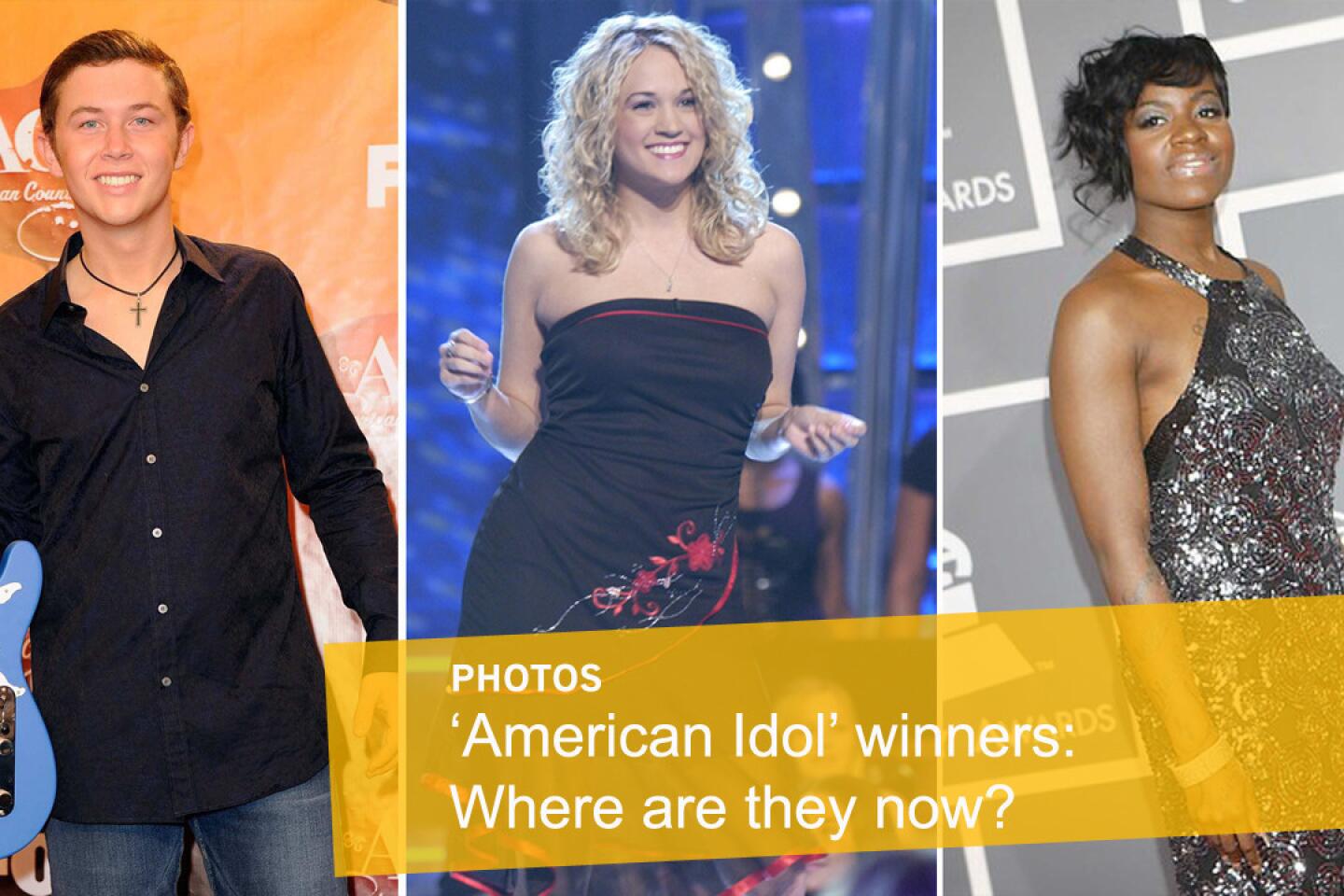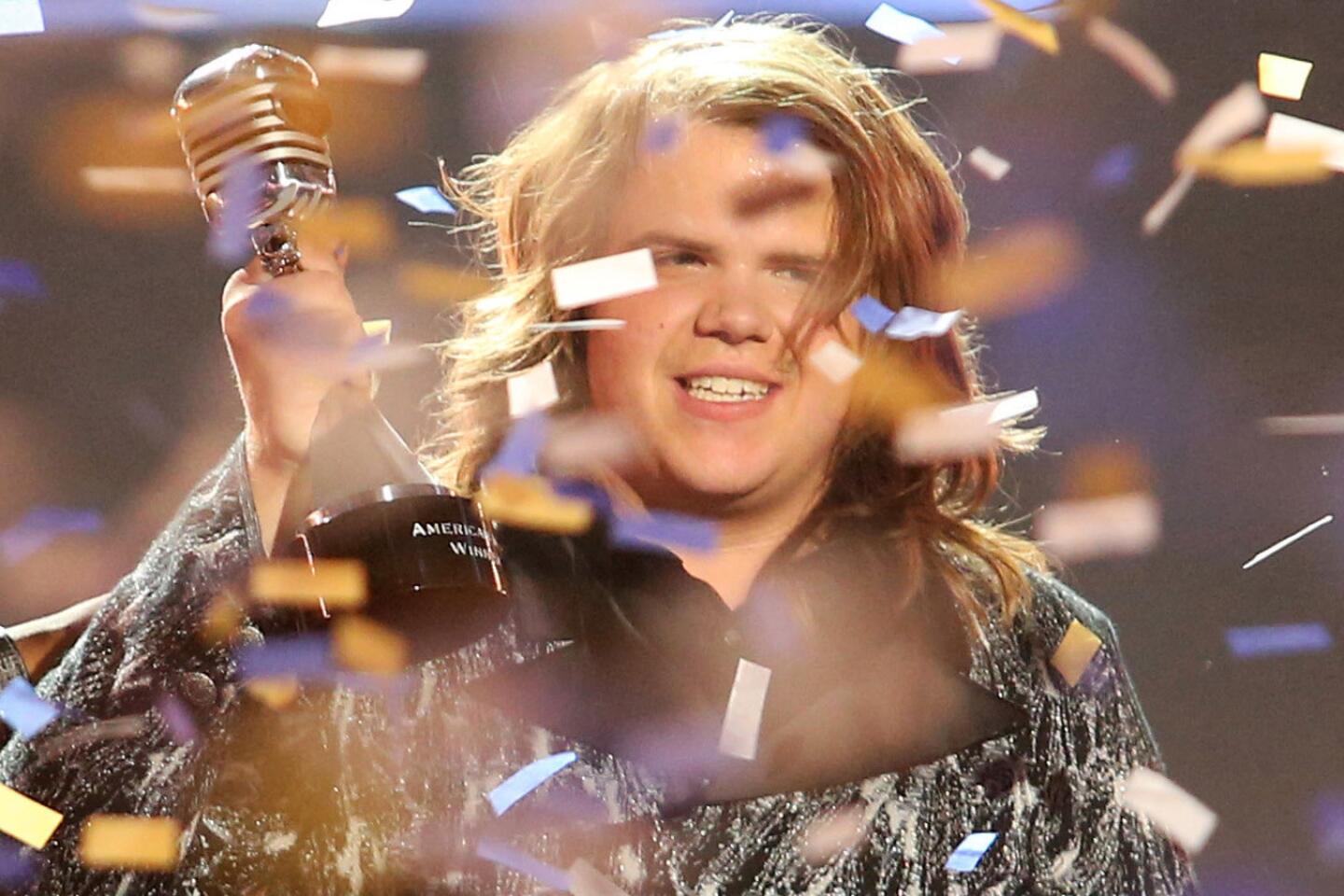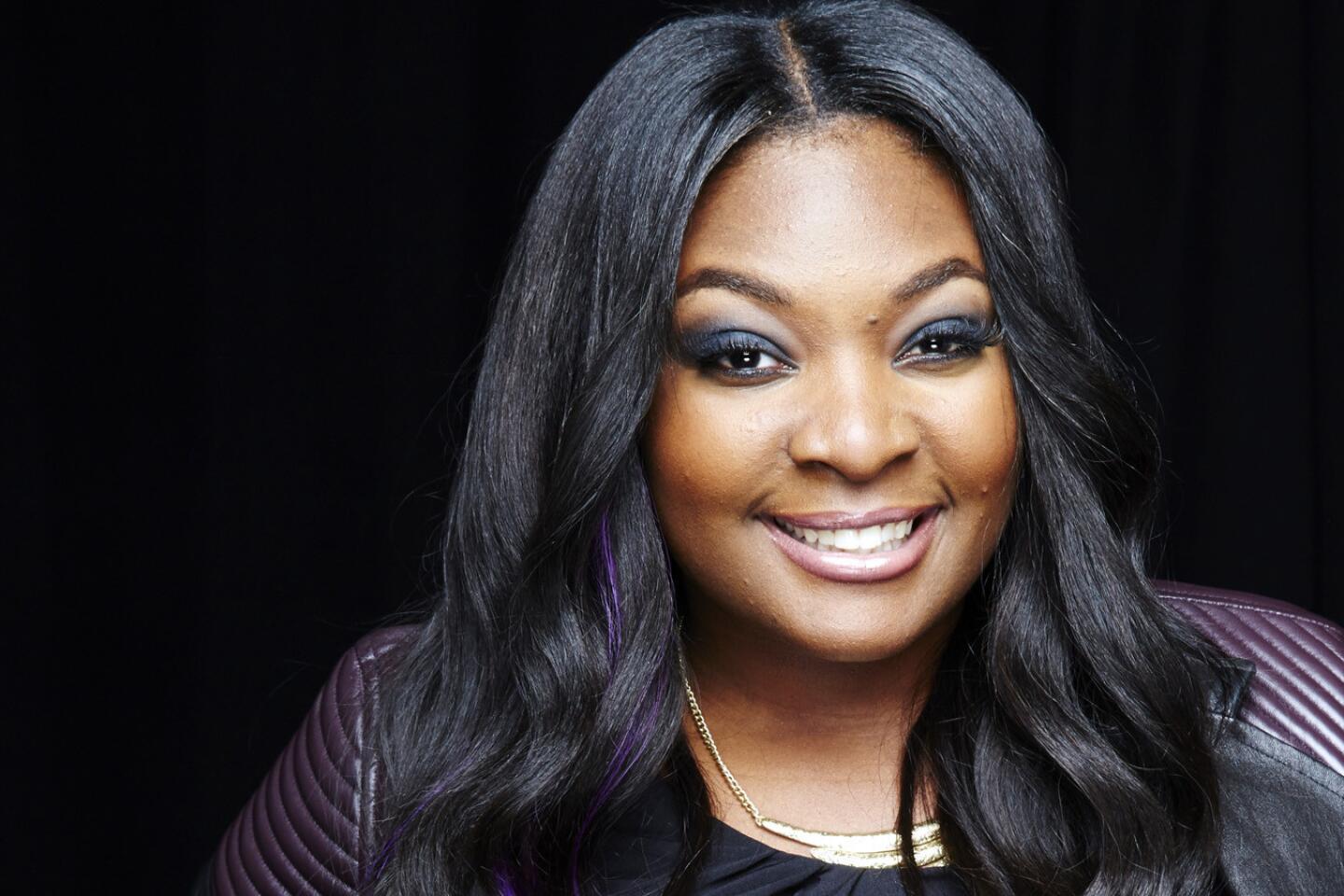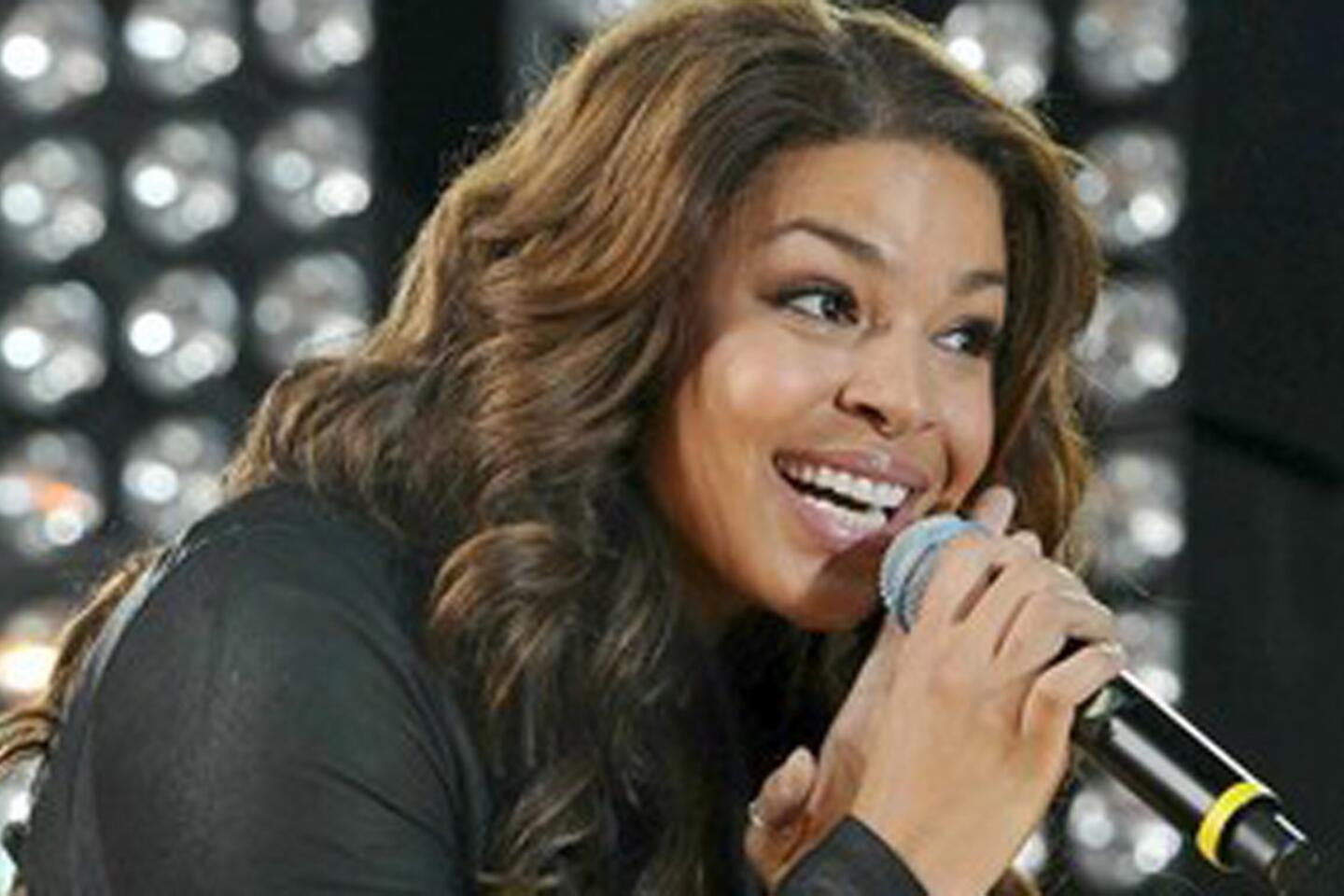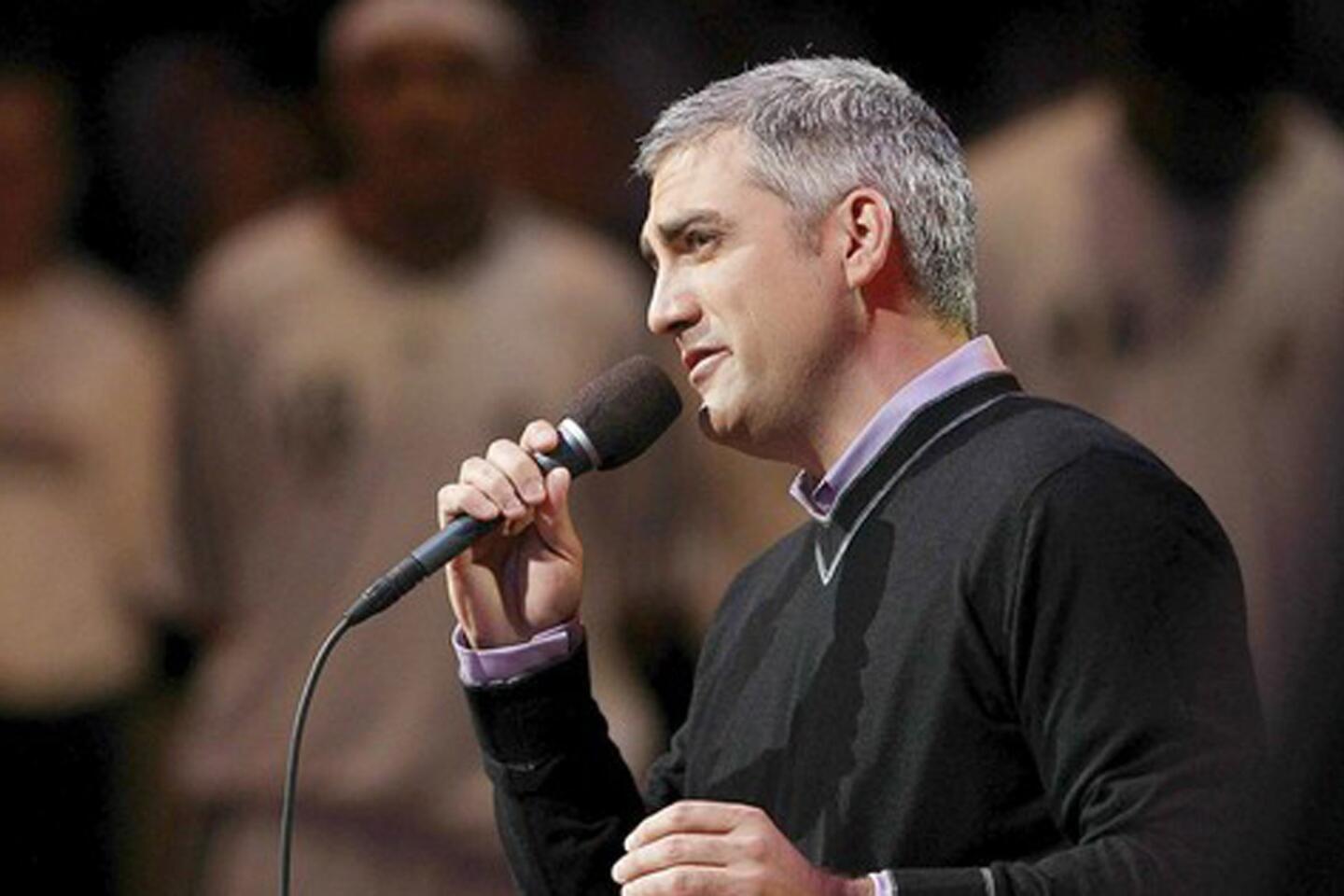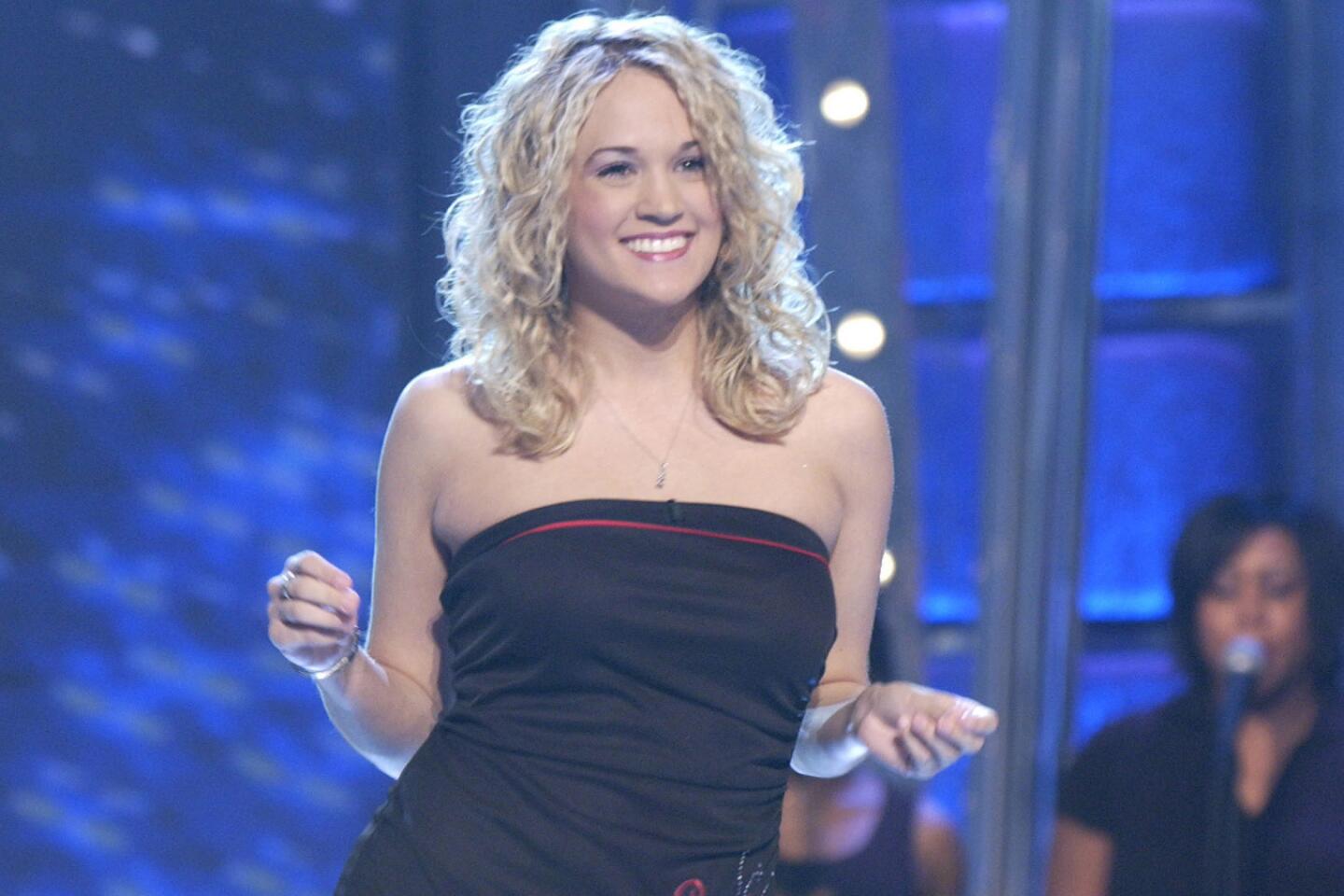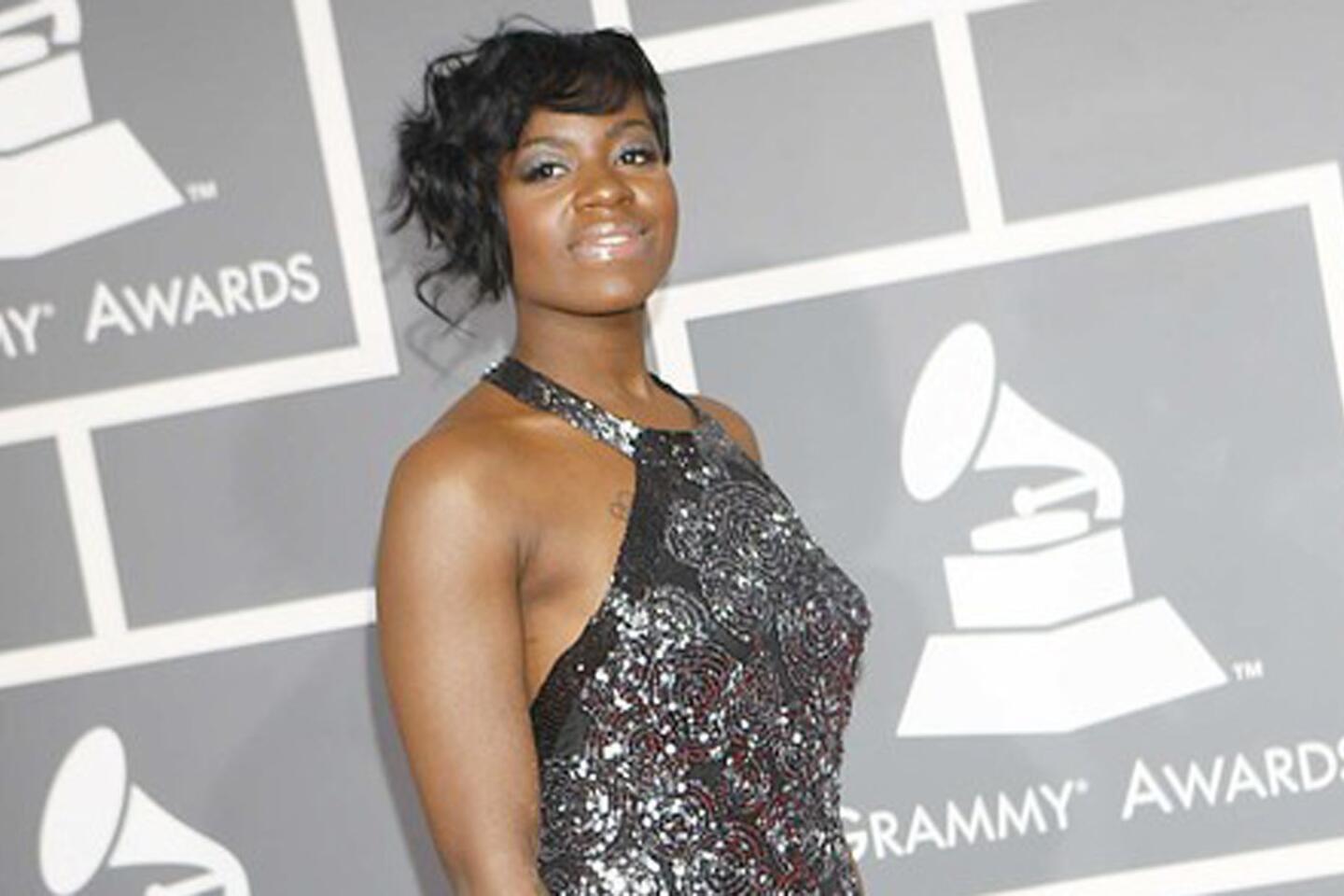âAmerican Idolâ on the way out after moving away from pulse of pop
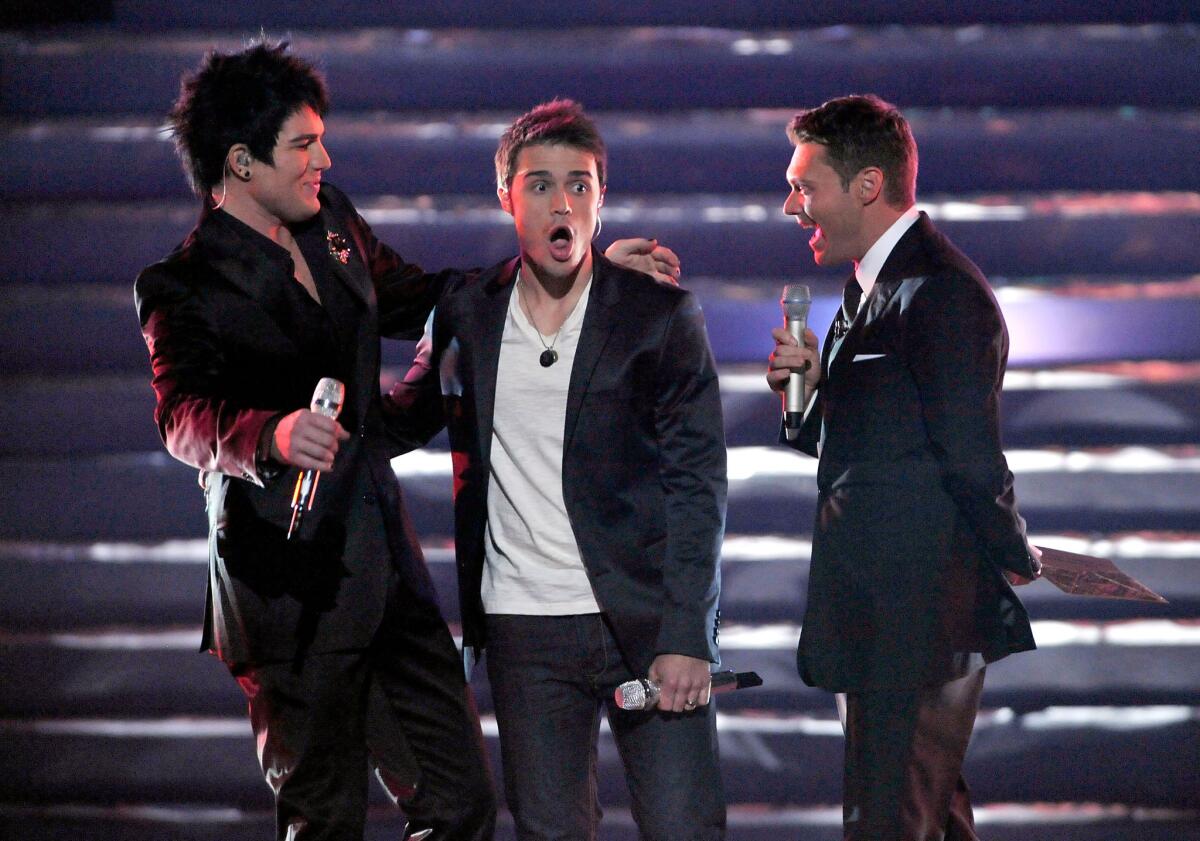
Adam Lambert, left, is runner-up to Kris Allen on âAmerican Idolâ in 2009, and host
The symptoms were all there for âAmerican Idolâ â falling ratings, high talent costs, advertiser defections. Few were surprised when Fox executives announced Monday that the showâs upcoming 15th season would be its last.
Whatâs perhaps less obvious is that the onetime ratings juggernaut lost its way several years ago, when it moved away from the pulse of pop in its broadest and most inclusive sense. It became less relevant to the overall musical conversation â a smaller and smaller echo chamber reverberating with outmoded ideas.
FULL COVERAGE: Saying farewell to âAmerican Idolâ
Or as its detractors put it on Twitter, it became just another forum for WGWG â white guys with guitars. The show was hugely popular in the South and increasingly seemed to reflect those regional loyalties.
In its heyday, âIdolâ served as a latter-day version of 1960s AM radio, with more stylistic and demographic diversity than network music programming typically offered. Everyone in the showâs audience had a rooting interest, and because the show depended on its viewers to steer the competition, it created the impression that, week to week, something pivotal was on the line â and it required your participation.
The Season 8 finale would have been a good one to end on. Thatâs when Adam Lambert, the peacocking glam-rock phenom, was up against Kris Allen, a milquetoast folkie.
Picking a side felt important, like a battle in a broader culture war. It reflected something about your identity, or at least about your idea of what you wanted music to represent: adventure versus safety. Innovation versus re-creation. The future versus the status quo.
Popular music had always been a forum for such disagreement, but âAmerican Idolâ turned the conflict into a televised spectator sport.
It was the showâs pop sensibility, along with its freshness and originality, that made it a hit from the beginning, way back in 2002. âIdolâ was the No. 1 show on TV for a record eight seasons, with its Tuesday performance episodes averaging more than 31 million viewers in 2006.
Along the way, it changed both TV and music. Other networks raced to get competitive reality shows (âDancing With the Stars,â âRising Starâ) on the air, and suddenly aspiring performers had a way to find fame and fortune without record companies in those pre-YouTube dark ages.
Most visibly, it made fresh superstars out of Kelly Clarkson, who came in first on âIdolâsâ inaugural edition, and Season 4 champ Carrie Underwood. Today, both are still A-list acts, with numerous Grammy Awards, hit singles and platinum albums between them.
The show also helped change the way those superstars do business by heavily promoting the sale of digital downloads (specifically through Appleâs iTunes Store) at a moment when illegal piracy was ravaging the record industryâs original profit centers.
âAmerican Idolâ affected pop more subtly, too. A contest decided in part by viewers, the show encouraged an emotional investment among fans that foreshadowed the rise of social media, where artists are accountable to their followings in ways their predecessors could scarcely have imagined. Singers like Lady Gaga and Katy Perry have capitalized on that sense of ownership to build so-called âfandomsâ of ultra-devoted enthusiasts.
See more of Entertainmentâs top stories on Facebook >>
But following Allenâs pivotal win over Lambert in Season 8, âIdolâ went on to anoint a series of increasingly bland Everymen â Lee DeWyze and Phillip Phillips among them â that suggested the show had fallen out of touch with popâs variety.
Good singers continued to file across the stage, of course, most notably the big-voiced soul belter Candice Glover, who won the competition in 2013 only to be neglected by the record label that awarded her a contract.
But no longer was âIdolâ preparing them for, or even really envisioning, the world beyond the show. In 2006, organizers identified an open lane on pop radio for a gruff but sensitive singer like Chris Daughtry, so they steered him toward the style and material that might fill that gap. He didnât win the competition but went on to use the exposure and the guidance he received to become a real-deal rock star.
Subsequent âIdolâ competitors struggled to make nearly as much of an impact, either in ticket or album sales. Last yearâs winner, Caleb Johnson â thatâs his name, right? â seemed totally adrift as an artist, mere chum used to attract viewers (and advertisers) to a TV show whose dramatic stakes never felt lower. Why bother getting invested if the program wasnât going to match your devotion?
As the show aged, âAmerican Idolâ also erred by showcasing its judges at the expense of contestants, becoming like a football game in which the coaches outshine the players.
In the days of the showâs founding panel â with Paula Abdul, Randy Jackson and Simon Cowell, the last of whom helped bring âIdolâ to America from Britain â the experts appeared genuinely dedicated to steering the young hopefuls placed before them.
Sure, Cowell could be nasty, but he always had a point. More important, he was assessing performances by the demanding standards of Top 40 radio, not the closed-off ecosystem of the show itself. When he left in 2010 (Abdul and Jackson also have gone), âIdolâ lost much of its pop savvy, which producers tried to replace by hiring actual pop stars, including the showâs current troika of Jennifer Lopez, Keith Urban and Harry Connick Jr.
Yet these three seem in it primarily for themselves, a problem less on moral grounds than because it diminishes the difference between âAmerican Idolâ and the other star-studded singing shows it spawned (like NBCâs currently more successful âThe Voiceâ).
Still, as we prepare to say goodbye to this giant of American entertainment â a farewell you can bet host Ryan Seacrest will milk for maximum sentiment during its final season â itâs easy to imagine missing the excitement âAmerican Idolâ used to generate at its peak.
Back then, you tuned in to watch pop cultural transition in action, be it an unknown singer figuring out how to capture and hold the attention of an audience or a music industry clinging desperately to a television-borne source of revival.
Fighting about music wonât be the same once itâs gone.
MORE:
âAmerican Idolâ: The slow fade of an instant hit
âAmerican Idolâ: Where even the losers were winners
Our first review of âAmerican Idolâ: This show could use a gong for everyone
From the Archives: Some âAmerican Idolâ thoughts from Simon Cowell in 2002
More to Read
The complete guide to home viewing
Get Screen Gab for everything about the TV shows and streaming movies everyoneâs talking about.
You may occasionally receive promotional content from the Los Angeles Times.
